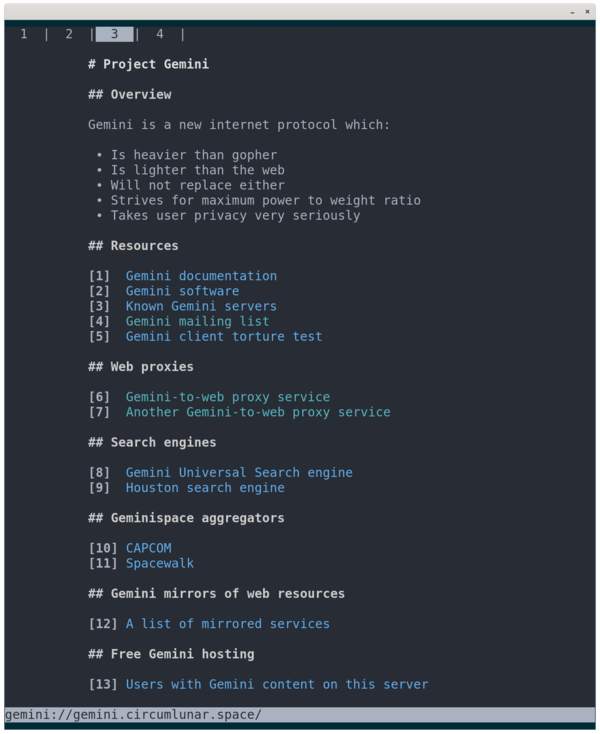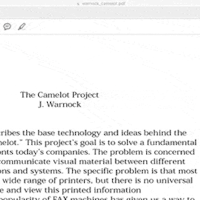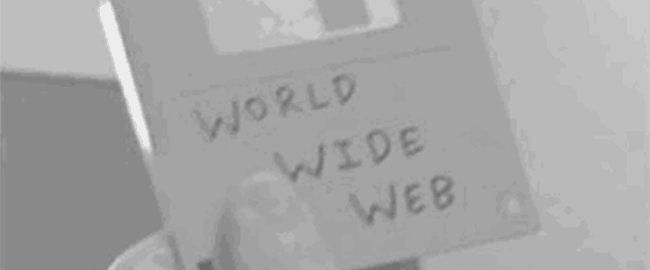
(CURVD Team/Unsplash)
It’s hard not to look at a site like Lab6—a publication built around PDFs as a form of protest against the corrupted nature of the web—and wonder how broken the internet must have gotten to generate something like it.
But it’s a fascinating idea nonetheless, and one that forces a broader discussion about the way the web is going. There are a lot of grievances in the document that went viral on Hacker News this week, and many of them are not exactly kind to the broader web, arguing against the nature of content marketing, the growing dominance of many websites, and the lack of controls for privacy.

(via the Lab6 PDF site)
But the harshest complaints seem to go against the fact that the internet changes, and frequently:
Articles are undated in an attempt to stay evergreen. If information architecture had a Geneva Convention, this would be a war crime.
The churn is relentless—content is changed without notice or record of history, or republished under different domains. The search engines are choked of their oxygen supply, with every search keyword assailed by a zombie horde of have-a-go algorithmically-generated content farms, trying to out-pagerank each other and exhausting the namespace around those keywords.
The unnamed author, who commented on said Hacker News thread but remains relatively anonymous, does something interesting by attempting such a strange experiment. This is not going to be a mainstream way to go, but by posing the discussion in this way, he forces us to think harder about the problems with the modern web.

Minus the put-in-documents part, Lab6 has a lot in common with Gemini.
PDF has a lot of issues, not the least of which is that it’s not optimized for web viewing at all, but it feels like an interesting basis for starting a discussion about whether we need a new alternative to web browsing to maintain the original digital ethos. In this way, the ethos borrows a lot from Project Gemini, an attempt to modernize Gopher.
Now, to be clear, I am a supporter of many of the points that this user enthuses. I think the web is a dangerously slippery area for archival and historical storage, and I’ve made that point repeatedly. But I think that there are realistic limitations to the save-as-much-as-possible mindset that we ultimately must accept as table stakes of this endeavor.
For one thing: The culture has already chosen the platform, and it will be hard to force an exodus, or even to get anyone to pay attention to a new experiment. Archivists ultimately have to work in the medium given. Accept that anything experimental like this will remain niche for the time being. The unnamed creator of Lab6 admits this, but for anyone reading it and scoffing, it’s good that you remember it, too.
For another: Commercialism is going to exist on the internet at this point. It just is. In so many ways, a lot of the complaints about the commercial web seem rooted in this idea that we need to go back to something. But we live in a world where being a professional YouTuber is a more popular dream job than being an astronaut—a point so crassly commercial, the study was done by Lego. We can critique commercialism (and admit that maybe Facebook is not the kind of commercialism we want), but at some point this line of critique can come off as the equivalent of walking into stores and smashing cash registers because money is bad. The information on the internet to be saved is mostly commercial. It’s just how it is.
And one more: The internet is the opposite of permanence. The truth is, the conversation around this PDF was more interesting than the PDF itself, and it all happened on the web, because the web is interactive and a PDF isn’t. One of our most popular social platforms, Snapchat, was designed to basically foster the constant destruction of content. We can preserve content from the web but we need to understand the flipside of it and the fact that it has a real-world equivalent: If I scream in my house for the next 20 minutes straight, there will be no documentation of me doing so unless someone actively records it. The internet is very much the same way—unless written down and saved, our information will not be protected. The internet is not permanence because it is not designed to be.
So yeah, Lab6 is not going to be much more than an interesting experiment worth reading for a new perspective, but we need to tamp down the information-is-meant-to-be-free talk: It is by no means a war crime that information keeps changing on a medium where information is designed to change. (Though Jakob Nielsen would probably argue it’s a war crime to publish something on the internet in PDF format.)
Tim Berners-Lee made the web editable for a reason, and it is the job of the historian or the archivist to document that evolution of information over time.
The people using the internet? It’s their job to build and destroy it every day. They don’t use PDF to do this for a reason.
Time limit given ⏲: 30 minutes
Time left on clock ⏲: alarm goes off (two days in a row, gotta work on that)



